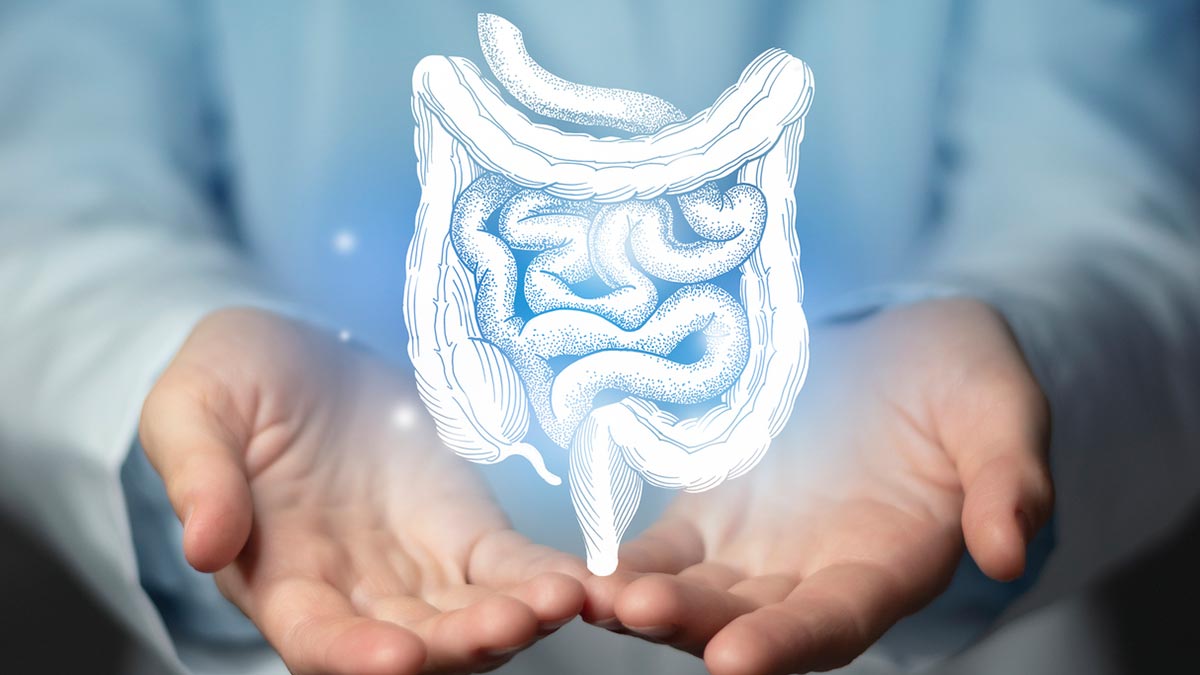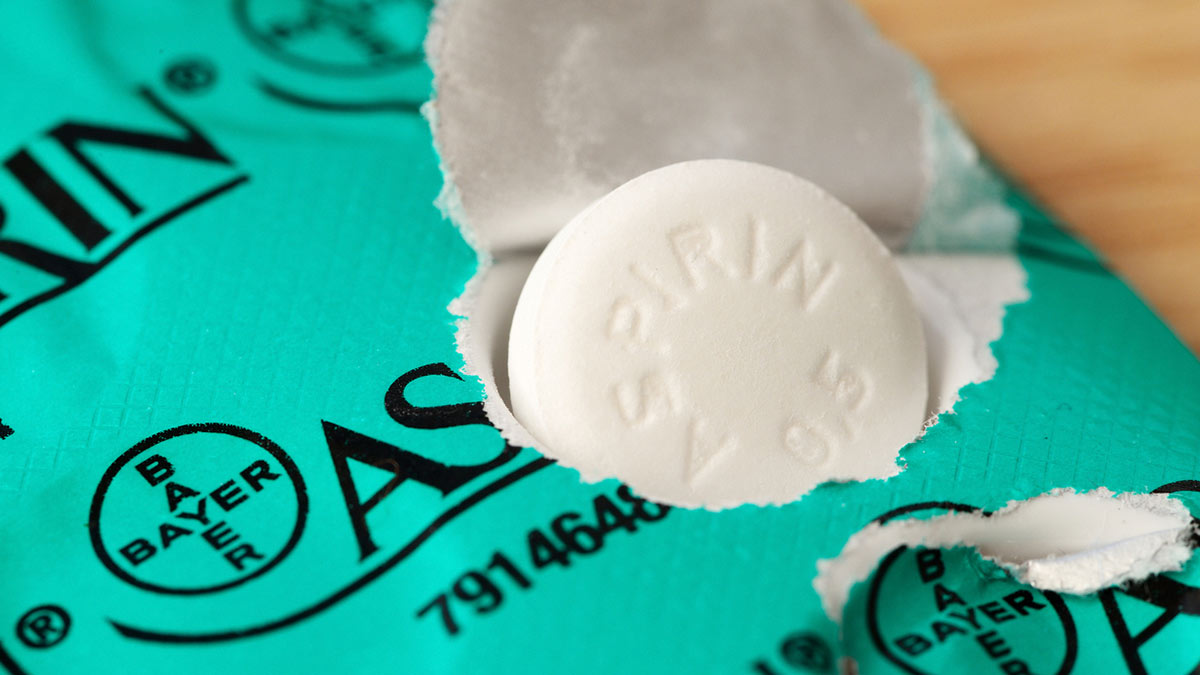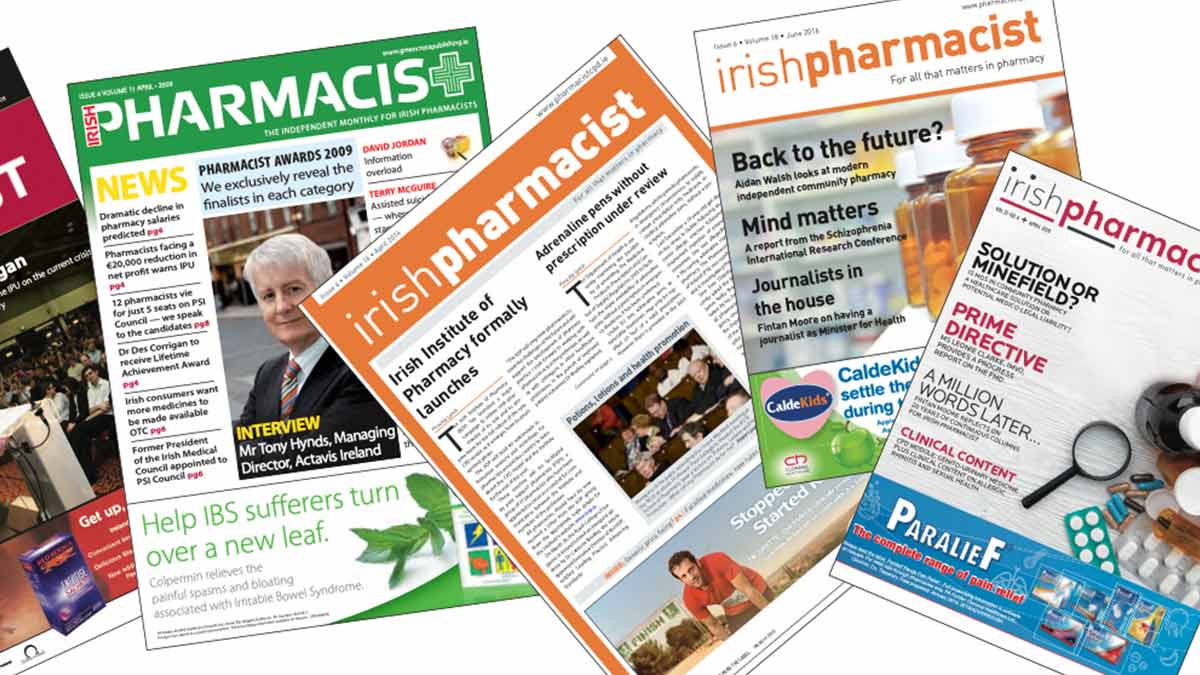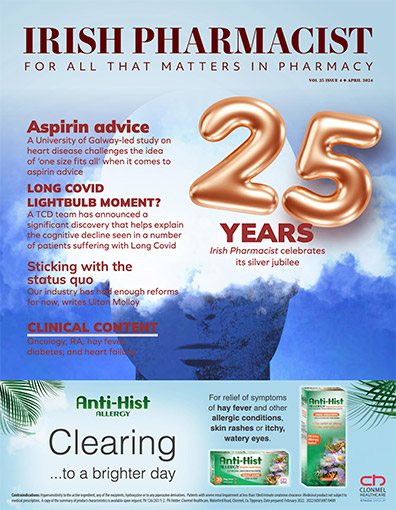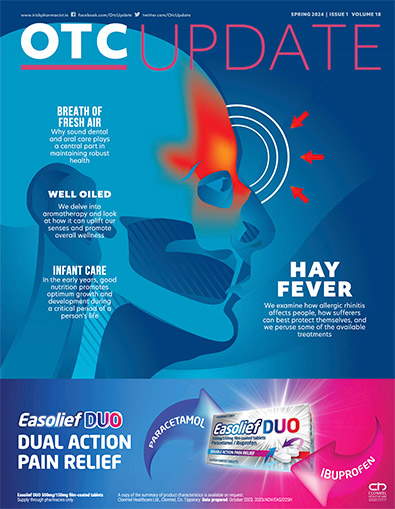Séamus Ruane, community pharmacist and certified positive psychology practitioner, looks at how our brains are sometimes ‘Velcro for the bad’
I have often thought that the chit-chat, conversation topics, and general mood at the pharmacy counter are a great gauge of the psyche of the population, more accurate perhaps than any RedC or similar survey. I am sure I am not alone in noticing a marked increase in stress, anxiety, and a general air of doom and gloom among customers and patients. I haven’t seen any statistics, but my sense would be that there is a general increase in prescriptions for anxiolytics, antidepressants and sleeping tablets. Conversations with medical colleagues would seem to confirm this view. And let’s be fair, 2020 has been a most extraordinary year, and we are living, and have lived, through events and times we never thought we would experience in our lifetimes.
So between the Covid-19 pandemic, the resultant lockdowns, the inconceivable number of deaths, the decimation of the economy, not to mention the shenanigans of Trump, Boris and Brexit, not forgetting climate change and the global refugee crisis, one would reasonably assume the whole world was falling apart. Let there be no doubt about it; our children, and their children, will study this turbulent time in their history classes for many years to come.
Post-traumatic growth
So amidst all of this chaos, would it be inconceivable to think that it may be possible to search for some joy, gratitude and thankfulness, or are we forever doomed to be victims of whatever crisis is going on around us? There are many examples throughout history of those who experienced extreme hardships and crises in their lives, who with hindsight point to the transformation and growth experienced as a result of those very hardships. We are all familiar with the term post-traumatic stress disorder, or PTSD, but many are not aware of its counterpart, post-traumatic growth.
For starters, it’s helpful to be aware of our brain’s negativity bias. As humans, we are pre-programmed to notice the dangers, threats, and problems in our environment. From an evolutionary point of view, this bias gave our ancestors a survival advantage, to be primed to notice any would-be attackers or threats to our life. However, in the modern world where, thankfully, our lives are rarely under threat, this bias can contribute to a general feeling of anxiety and fear. It is said our brains are like ‘Velcro for the bad’, in that problems, threats and mistakes are very attention-grabbing for our brains, and like Teflon for the good, meaning that there we experience many blessings in our lives at all times, but our problem-seeking brains tend to discount them.
Because of this negativity bias, we need to actively seek out positive emotions, and doing so has been shown to provide a welcome boost to our wellbeing. So, before you throw your eyes up to heaven and discount this as some kind of happy-clappy happiology, let me explain. It is not sufficient to assume you’ll get out on the right side of the bed half the time, and the wrong side the other half, and sure, things will balance themselves out. Our negativity bias means we need to actively prioritise positivity to rebalance things.
Value
The value of this is not just that it will make us feel better, but that positive emotions lead to what Barbara Fredrickson, Professor at the University of North Carolina, calls the Broaden & Build Effect of Positive Emotions. She proposes that positive emotions don’t exist just because they feel good, but because they alter how we interpret and interact with the world around us. Negative emotions narrow us, and when we feel a negative emotion, we enter threat mode, and focus solely on our problems and ourselves.
When things are good and we feel positive, we are far more cooperative, collaborative, and creative. We are more outward-looking, and far more likely to engage and connect with others. I’m sure we can all relate readily to this in the pharmacy environment, when things just seem to flow so smoothly on the days we are bright and cheery, and the issues and problems always seem to arise on those days we feel less than at our best.
So what can be done to tip the balance in favour of the positive? There are 10 positive emotions, namely love, serenity, forgiveness, awe, joy, interest, hope, pride, amusement, and inspiration. If we are experiencing emotional turbulence, stress or some sense of anxiety, one potential solution is to put the focus on these positive emotions. Even during the most difficult and stressful of times, there exists the possibility of experiencing these emotions, though our initial thoughts may suggest there is no such chance.
Here are some questions to ask of yourself:
- How aware am I of my emotional state and how it affects those around me?
- What could I, or we as a team, be thankful for in our working day?
- Do I express gratitude to my colleagues for all their assistance and hard work?
- How could I create an environment that encourages excitement, enthusiasm, and fun?
If you would like to work with Séamus to boost your level of wellbeing or that of your team, he can be contacted at Tel: 087-2274108 or email info@ithrive.ie.

